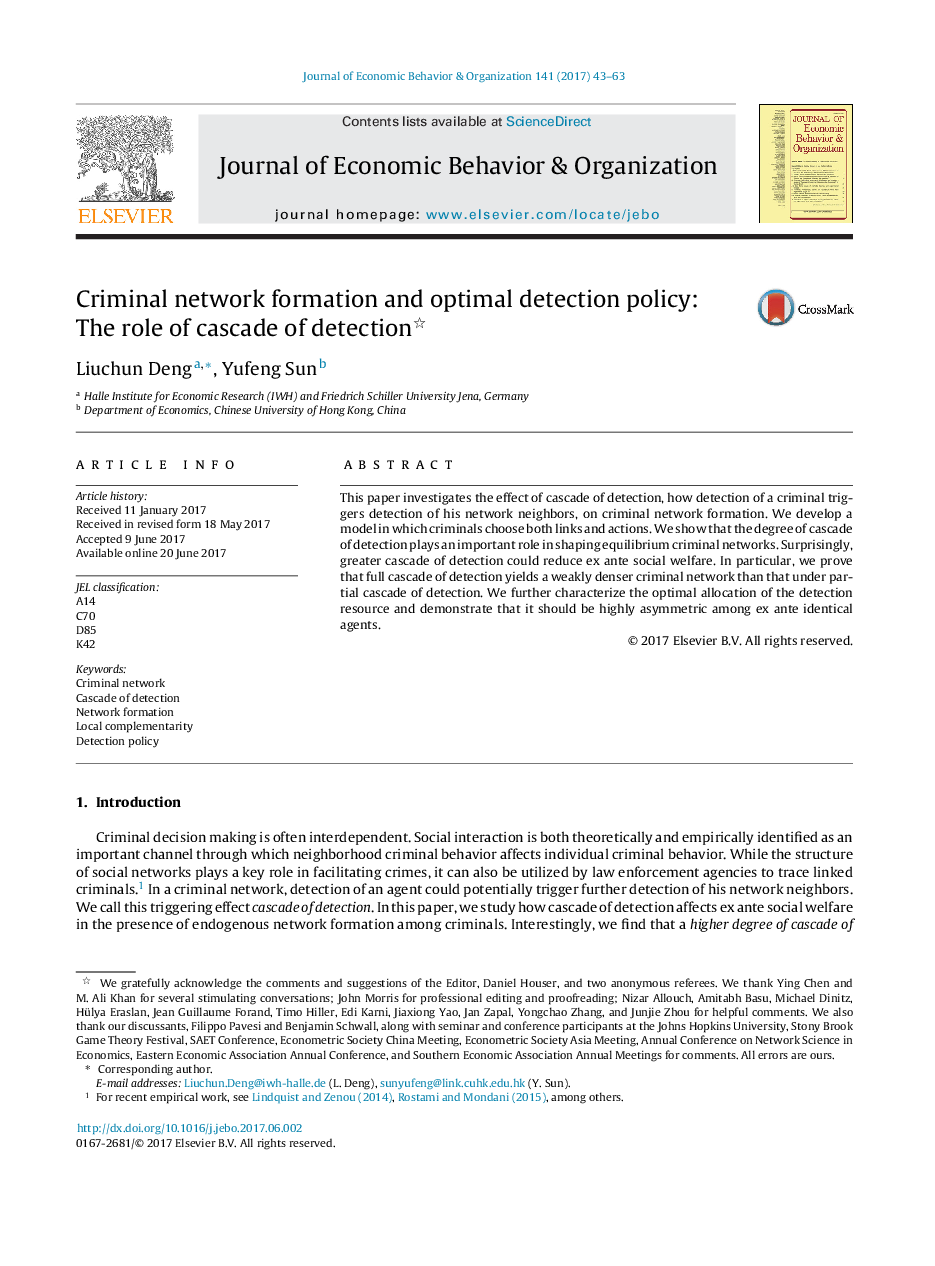| Article ID | Journal | Published Year | Pages | File Type |
|---|---|---|---|---|
| 5034390 | Journal of Economic Behavior & Organization | 2017 | 21 Pages |
Abstract
This paper investigates the effect of cascade of detection, how detection of a criminal triggers detection of his network neighbors, on criminal network formation. We develop a model in which criminals choose both links and actions. We show that the degree of cascade of detection plays an important role in shaping equilibrium criminal networks. Surprisingly, greater cascade of detection could reduce ex ante social welfare. In particular, we prove that full cascade of detection yields a weakly denser criminal network than that under partial cascade of detection. We further characterize the optimal allocation of the detection resource and demonstrate that it should be highly asymmetric among ex ante identical agents.
Related Topics
Social Sciences and Humanities
Economics, Econometrics and Finance
Economics and Econometrics
Authors
Liuchun Deng, Yufeng Sun,
